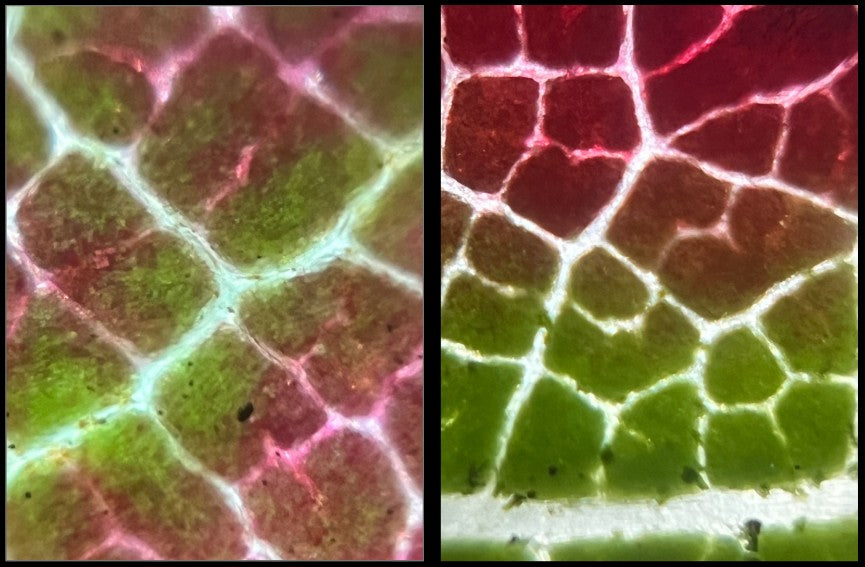by Akshatha Nayak

Science has for long been considered a subject for the elite that involves expensive equipment and technology that is generally only available in well-funded schools and colleges. Hence, what is left for the less privileged is to learn science through plain and unattractive school textbooks without much practical experience to truly enjoy the pursuit of science.
Foldscope, a paper-origami based frugal innovation microscope has made outreach of scientific exploration possible in extremely resource-constrained areas. After several months of COVID-19, we were all set to resume our workshops with the mission to take Foldscopes to the most resource-constrained communities who otherwise have the least opportunity to get their hands on scientific tools and it turns out to be a boon for education that faced major hindrance during the pandemic.

The workshop was organized at the Radhasoami Adivasi Higher Secondary School Rajaborari campus, in the Satpura range covered in dense forests in the Madhya Pradesh, India. The area is primarily populated by Gond and Korku tribes, clustered in small hamlets few and far between the forests. The nearest town (Timarni) is 40 km away. It is fascinating that glimpses of culture depicted in cave paintings from Bhimbetka and other caves are evidence of the earliest human settlements in India and can still be seen not very far from this place. The earliest humans in the area, as we know through archaeological evidence, used advanced tools of the time and created wall paintings through colour and brush, documenting their culture for eternity.

Fast forward to the present, we aspire for the current generation of these indigenous tribes to have the contemporary tools for pursuing science and development. Dayalbagh Educational Institute has been working for the socio-economic development of these communities through technology-enabled communication and digital connectivity as well as several innovative educational and livelihood facilities. Thus, this foldscope workshop was a significant event facilitating education and scientific temperament in the community and bridging the urban-rural divide.

A pre-workshop session organized on 12 November 2021 for training 30 student trainers who would help train many more of their peers arriving from remote hamlets in the latter days for the actual workshop.
The student trainers quickly got their hands on a Foldscope and learned the hacks of mounting various samples. In the latter days of the workshop, they passionately trained and guided 300 students and then together with those 300 students, trained another 900 students and youth from a wide radius covering several villages, thereby successfully training more than 1200 students in assembly and effective usage of Foldscope through the 3-day workshop.
During the pandemic, while it was impressive to see that the organizing school and other schools affiliated with the Dayalbagh Educational Institute had made adequate arrangements for tribal students to continue education without losing a single day, many of the students arriving from other farther-off villages had faced immense hurdles to continue education during the pandemic. Many of their friends had dropped out and this had further demotivated them from schooling.


The SciHi@Rajaborari.2021 Frugal Innovation, Foldscope and Science Awareness Workshop conducted from 13 through 15 November 2021 turned out to be a spectacular event. We noticed how the students enjoyed exploring things around through foldscope - both living and nonliving. The samples collected by the students were extremely diverse and sometimes unimagined! We tend to forget how innately curious children are! We do not need to cultivate curiosity among children, but instead just need to provide them with the tools for exploring their curiosity and facilitating on their path of exploration towards scientific understanding.




On the final day of the workshop, a bio-walk with foldscopes was organized in the natural forest surroundings with a rivulet. The objective was to give students an opportunity to learn to observe carefully, select samples, prepare slides while on the field and note-down observations. The students were given some basic safety instructions and some guidelines about not harming any life form while making observations. Students used this opportunity to collect samples across different phyla. They were divided in small groups with senior students leading each group along different parts of the rivulet. Senior students and foldscope fellows showed them ways to collect samples and make slides for observations. Water samples from the riverside consisted of algae, rotifers, ciliates, daphnia and other samples like parts of crab, ants, mites, leafhoppers, flowers, pollen, decayed leaves and the list goes on! Few curious students found a dead snake and scorpion, their skin was also observed under the Foldscope.





It was a delight to watch students unwilling to put down their foldscopes during other sessions - secretly passing on their foldscope to friends showing them what they just observed! The joy of sharing observations is a very important catalyst in the peer learning process. This enthusiasm led the students to form an impromptu foldscope club to continue sharing their explorations through monthly activities.

We hope this joy of scientific exploration and foldscoping has motivated the students to come out of the pandemic blues, continue their education amidst hardships, and cultivate new enthusiasm for science and research, or simply citizen science for community development!
Besides the immersive experience of exploring the microcosmos in rich natural surroundings, the workshop was also enriching and fulfilling for us in several other ways. The instant bonding with the tribal community, their courtesy and etiquette, the ambience of the melodious spiritual music played during Satsang (that we learnt is transmitted globally from Dayalbagh, Agra and curiously, that automatically started playing internally in the head even after leaving Rajaborari) has left lasting impressions which will be cherished for long.



